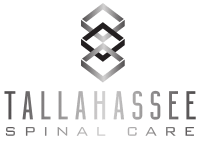Worried about back problems or pain in your neck?
At Tallahassee Spinal Care, we treat an extensive range of medical conditions related to back, neck, and pelvic pain. To give you a brief idea about the type of services you can expect from us, here are the conditions we treat:
Pain in the lower back is one of the main reasons why people visit physicians, and it is also one of the most common ailments. Most cases of chronic back pain can be related to a muscle strain, accident, or injury, but there are other instances that include ‘structural’ problems like degenerative disc disease, spinal stenosis, and herniated discs.
Numerous factors can cause neck pain, which includes a ‘pinched’ nerve, arthritis, muscle strain, or a car accident. In general, neck pain tends to go away with rest, massage, and pain relievers, but some people can suffer chronic pain and significant trauma that needs proactive treatment.
A lot of the times herniated discs happen in the lower back (lumbar) or neck area (cervical) spine. Herniated discs can cause a lot of pain, weakness, and numbness in the body when they press against the nerves.
There are several kinds of headaches, which may have different causes, but one thing they all have in common is that they can be painful. Most headaches can also lead to other symptoms like vomiting, and nausea. The most common types of chronic headaches are cluster headaches, tension headaches, and migraines.
Sciatica occurs when a herniated disc in the lower back causes numbness and pain in the buttock, which goes down to the leg. Sciatica is generally a sign of a herniated disc in the lower back, which is putting pressure on the sciatic nerve. You experience pain mostly on one side, but it starts to worsen when you laugh, sneeze or cough, or after walking, standing, sitting, or bending backward at night.
Tiny cracks on the outside of the disc may dislodge the disc, which is when the degeneration process will start. People involved in heavy physical work and cigarette smokers are the ones most likely to experience these changes. Overweight people also have a greater chance of suffering from degenerative disc disease.
A ‘pinched nerve’ occurs when there is an injury or damage to one nerve or a set of nerves. This can also be caused by stretching, constriction, or compression. A pinched nerve may also happen if a herniated disc comes on top of another nerve. The signs of a pinched nerve include pain or burning sensation in the affected area, the feeling of ‘pins and needles’, and numbness.
Spinal stenosis is when the spinal canal is narrowed due to various reasons, which include a herniated disc, tissue thickening in the canal, and excessive bone growth. The narrowing may aggravate the nerve roots at the end of the spinal cord or the cord itself. It mostly occurs when tissues degenerate due to the aging process and affect people above the age of 50.
Arthritis, aka Osteoarthritis, is when wear and tear damages the connective tissue (ligaments/cartilage/discs) between the joints of the spine and the connective tissue does not heal right. Without proper treatment the connective tissue often heals stiff and painful and tender. If left untreated for long enough, the connective tissue will heal permanently wrong. Often patients are told “arthritis” is the cause of their pain and there is nothing that can be done, when frequently there are new cutting-edge options that can provide relief and help with proper healing to prevent a permanent problem.
